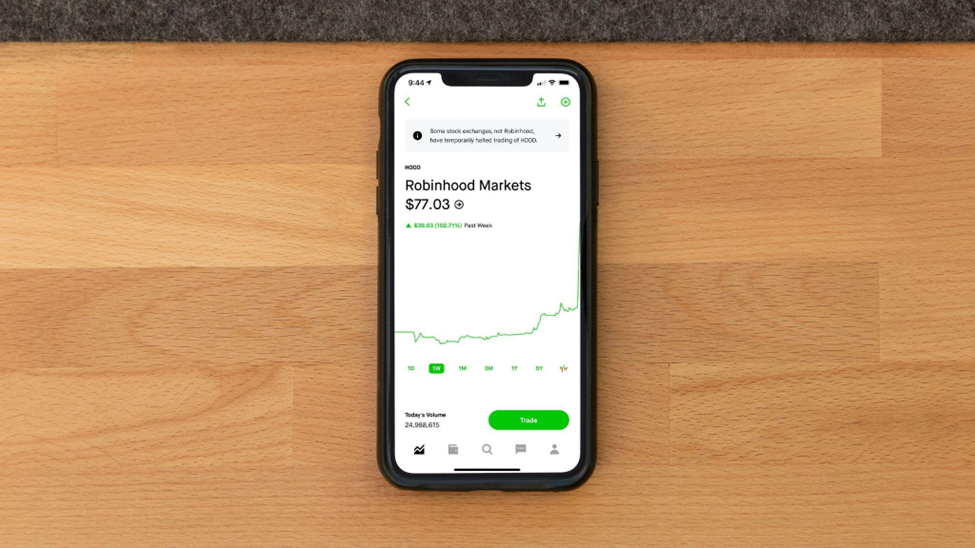If investing were a battleground, who would emerge the victor: Gen Z or millennials? The former are those born between 1997 and 2012, and millennials were born between 1981 and 1996. Each generation is equipped with unique tools and faces particular economic challenges, but it’s how they use these tools and respond to these challenges that define their success.
Let’s compare these generations by examining how they invest and concluding which of the two is more successful at growing their money.

A snapshot of millennial investing habits
Millennials believe in investing, but are they any good at it? A whopping 88% of millennials invest, but just 55% have confidence in their ability to manage those investments.
Despite making more money, millennials manage to hold on to less of it than previous generations. This is primarily a result of the increased cost of living, but perhaps it also has some bearing on millennials’ ability to invest wisely and increase their net worth.
The housing boom is a boon to millennial homeowners
Contrary to many other generations, millennials actually thrived during the pandemic, with some doubling their net worth. While statistics don’t lie, they don’t always offer a complete picture. The housing boom is one of the primary reasons millennials’ net worth increased so quickly during this time of turmoil. Conveniently, millennials bought real estate at a great time and enjoyed watching their property values skyrocket in 2021 and 2022. No one could have predicted the pandemic’s impact on the housing market, so while millennials benefit from it, crediting them for the success of this particular investment is questionable.

For those millennials who failed to break into the housing market before the pandemic boom, the dream of homeownership may remain out of reach for the foreseeable future. Unfortunately, this is just one of several significant financial challenges millennials grapple with.
Challenges millennials have faced
Millennials haven’t had it easy. Between the 2008 financial crisis and the pandemic, millennials have weathered some of the economy’s most brutal storms. The Washington Post dubbed millennials «the unluckiest generation in U.S. history.» Millennials endured some of the Great Recession’s worst losses from an employment perspective, resulting in financial setbacks that took years to recover from.
Millennials occupy the liminal space between a generation that struggles to embrace technology and a generation that vaguely remembers a world without computers and cell phones. They’re not like Gen X’ers, but they also haven’t carved out a niche for themselves like Gen Z. Unfortunately for millennials, being stuck is a feeling that’s all too familiar and appears to have defined the millennial experience. They suffered dearly from the economic woes of 2008 and haven’t been able to capitalize enough on the bull market, one of the few breaks they had a chance to catch.
A Snapshot of Gen Z Investing Habits
Gen Z likes to invest, but unlike millennials, they don’t seem all that interested in playing it safe. While millennials poured their hard-earned money into mutual funds, Gen Z has its own ideas of where to invest; it isn’t all about the returns. Apparently, understanding investing isn’t a prerequisite – or even a priority – for Gen Z’ers. In an Investopedia poll, just 31% of Gen Z’ers claimed to understand investing, yet they continue to immerse themselves in the world of investing.
Gen Z takes ESG seriously
According to a poll from McKinsey, Gen Z takes social and environmental responsibility seriously. This concern impacts the success of companies, and as the largest generation in the world, Gen Z has an enormous influence on which companies come out on top.
Gen Z investors are also highly active on social media and have already demonstrated their ability to band together and exercise power in numbers. Gen Z is active and outspoken and recognizes its ability to determine the fate of certain companies. That’s part of why we’ve witnessed meme stocks, crypto, non-fungible tokens (NFTs), and other non-traditional assets explode in popularity over the past couple of years.

In a 2022 survey, 54% of Gen Z investors aged between 18 and 25 reported holding some kind of investment. Of those investors, 26% own stocks, 23% own cryptocurrency, 12% have mutual funds, and 10% have NFTs. Gen Z isn’t afraid to blaze the trail with different assets and is a forward-thinking generation with its own ideas about investing.
Challenges Gen Z Has Faced
Gen Z has faced plenty of its own challenges, and the future isn’t looking much kinder for them. Most of Gen Z were too young to catch the 11-year bull market that began in 2009. They’ve had to keep up with fast-rising prices and painful inflation, and even in this hot job market, they have struggled to find their footing in the professional sphere.
Today, as many Gen Z’ers enter the workforce, stability seems to be a pipe dream. The pandemic complicated matters further for Gen Z, serving up a fresh set of problems that may have lasting effects on a generation just starting out.
The Winner (Barely)
When comparing the investment success of millennials and Gen Z, it’s hard to say with any authority which generation is more successful. For one, millennials have been in the workforce for longer, which means they’ve earned more money, have more investing experience, and have had more time to watch their money grow. In addition, because these two generations are so close in age to each other, older Gen Z investors and younger millennials are similar in age and have lived through many of the same economic challenges.
While we can’t offer a definitive answer on whether a millennial investor or a Gen Z investor would prevail in a head-to-head battle, it seems like Gen Z might have a slight advantage over their millennial predecessors.
Millennial investors are high-income earners and have had plenty of opportunities to enjoy historic investment returns from the longest bull market in history. Millennials seem to think and act like Gen X’ers, but in doing so, they fail to adapt quickly enough to the day’s challenges. And, despite reporting a better understanding of investments than their Gen Z counterparts, millennials still haven’t managed to do much with that knowledge.

Despite their self-proclaimed lack of investment expertise, investors from Gen Z are not only ready and willing to invest, but eager to do so. Furthermore, they appear to have a greater appetite for investment risk, a willingness to learn, and, perhaps most valuable, more time to figure it out.


